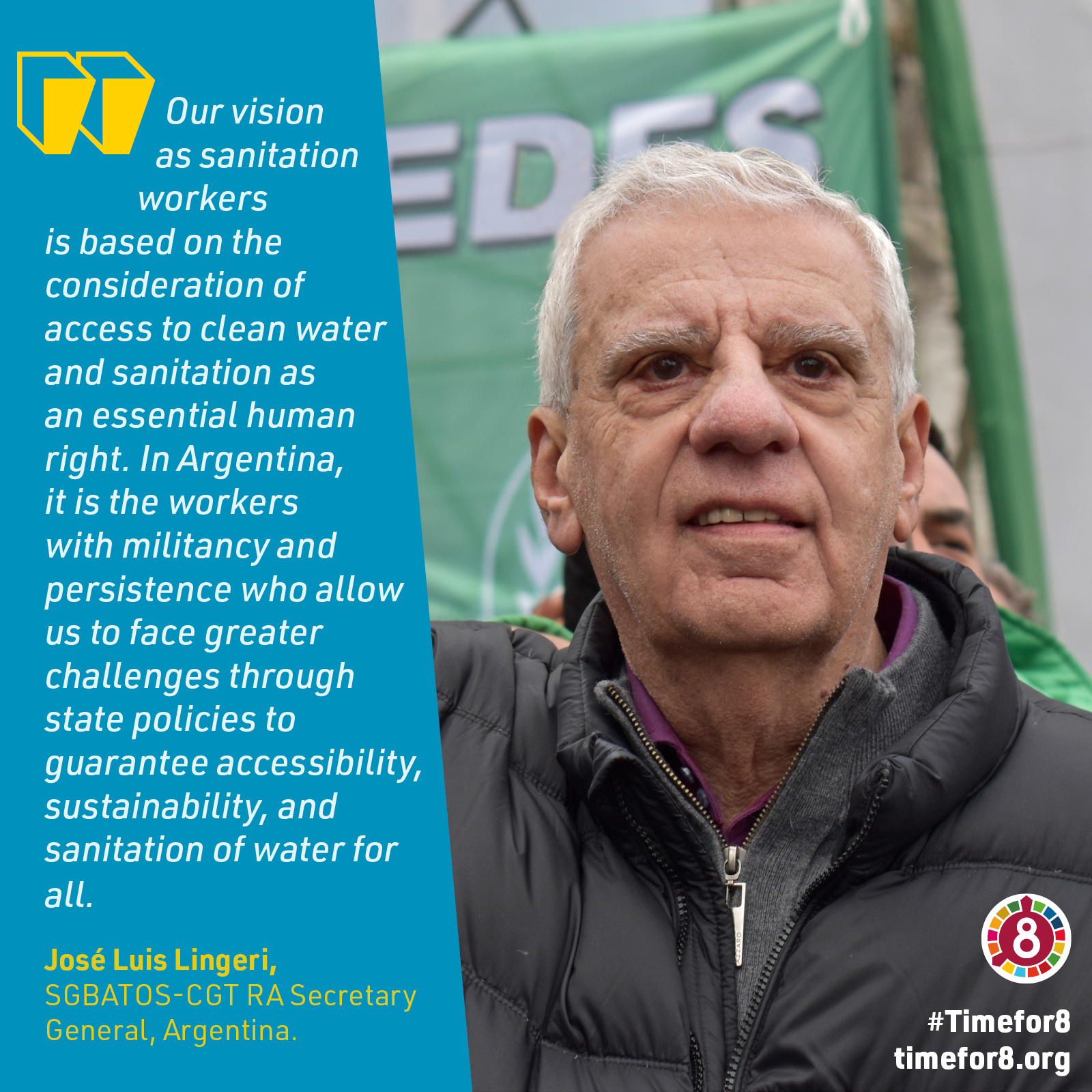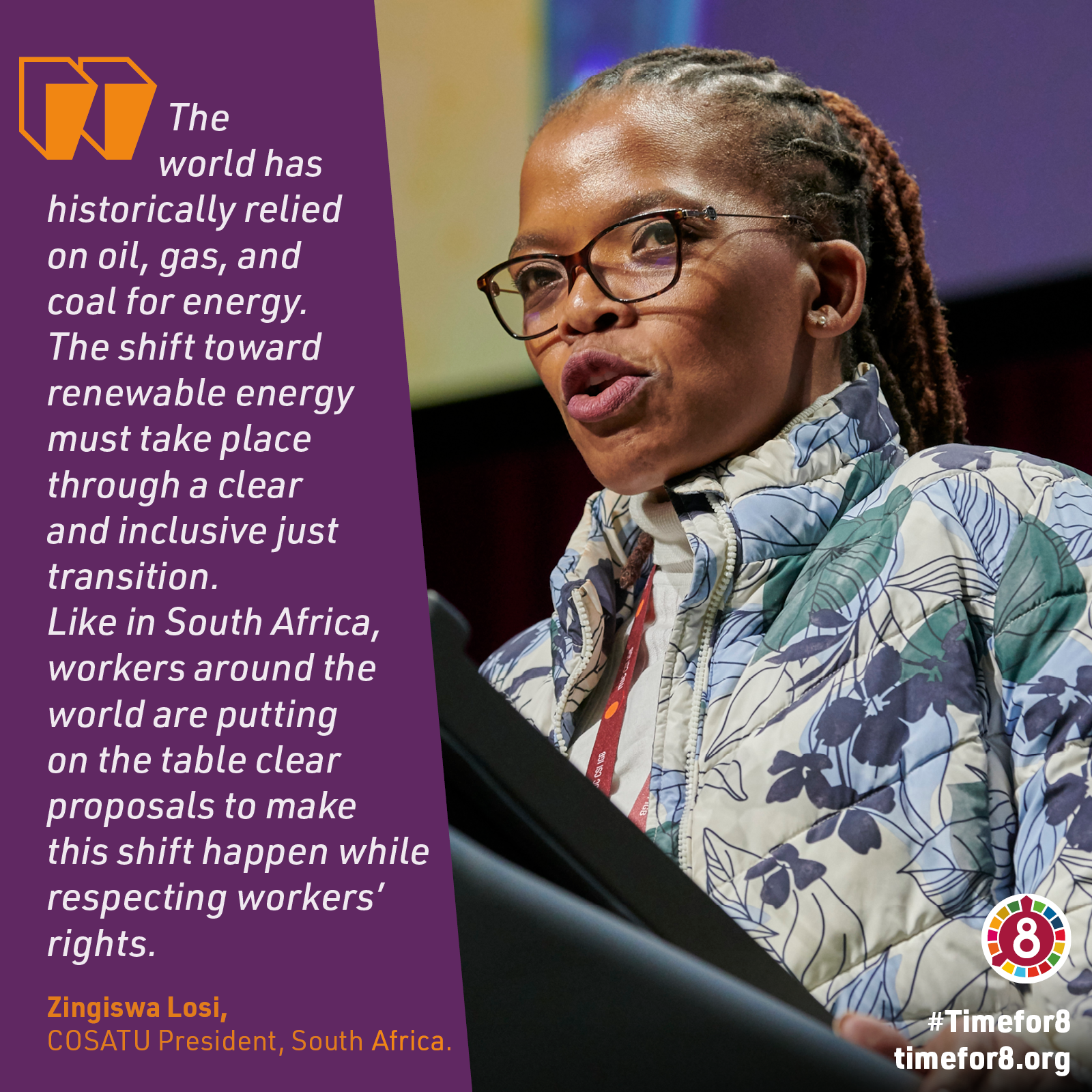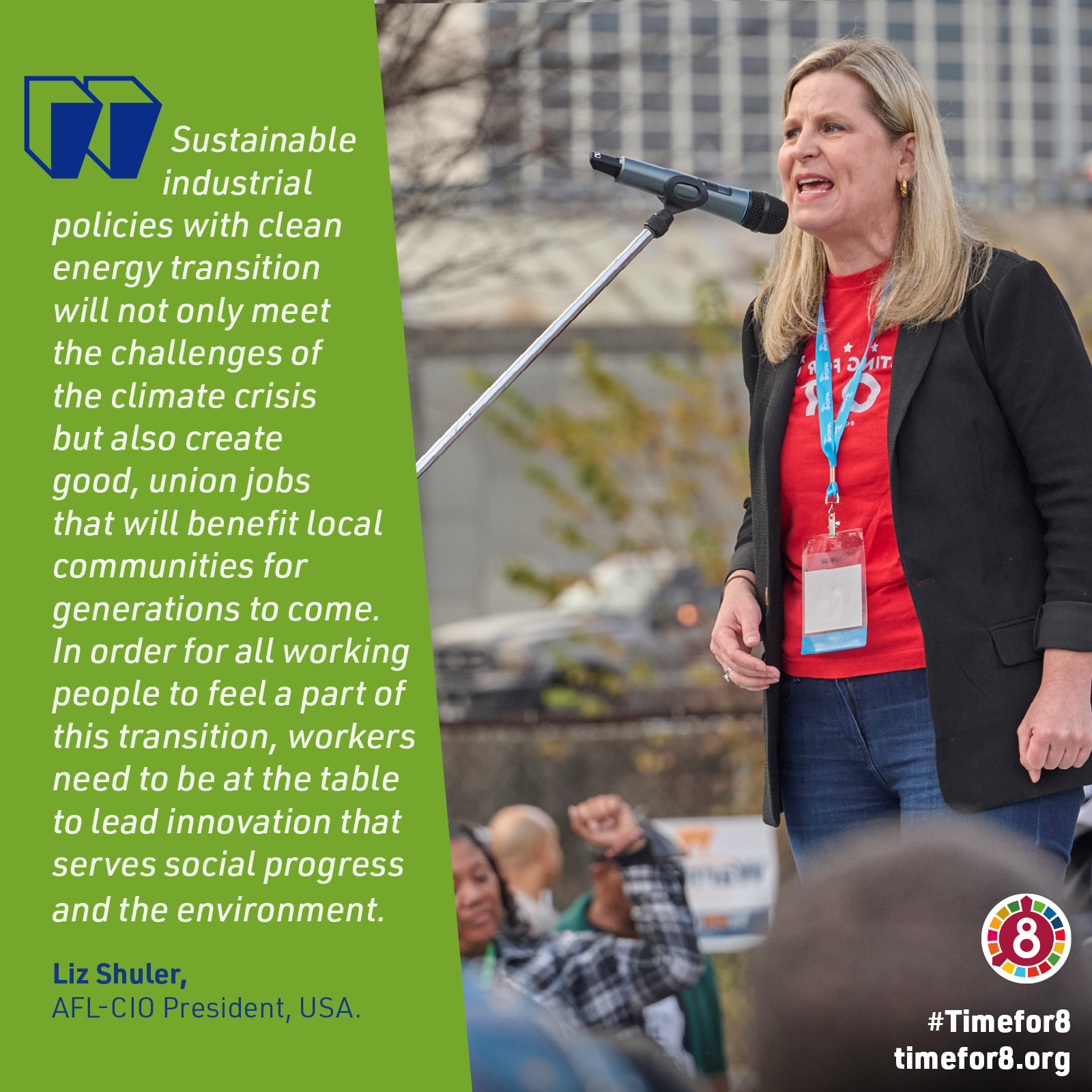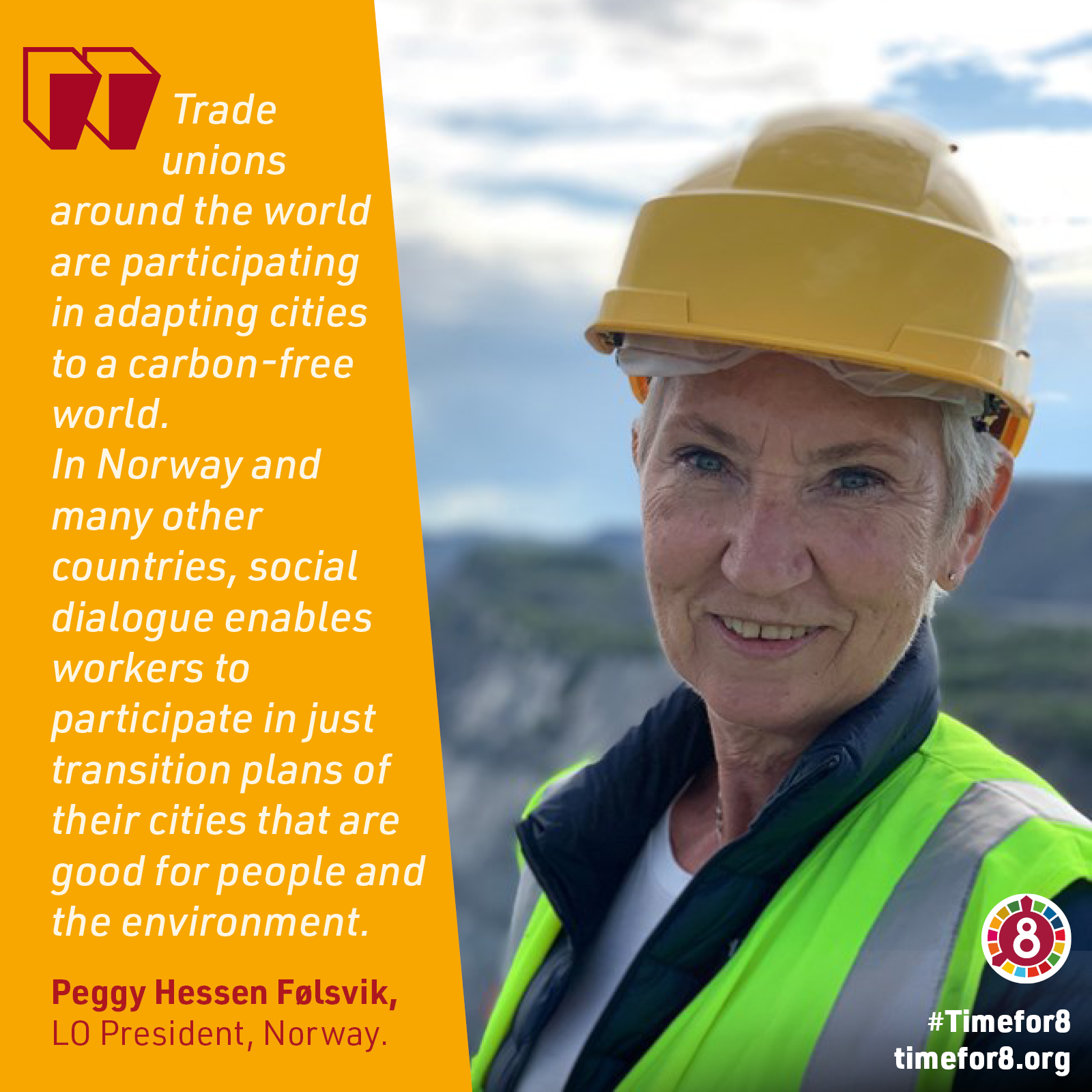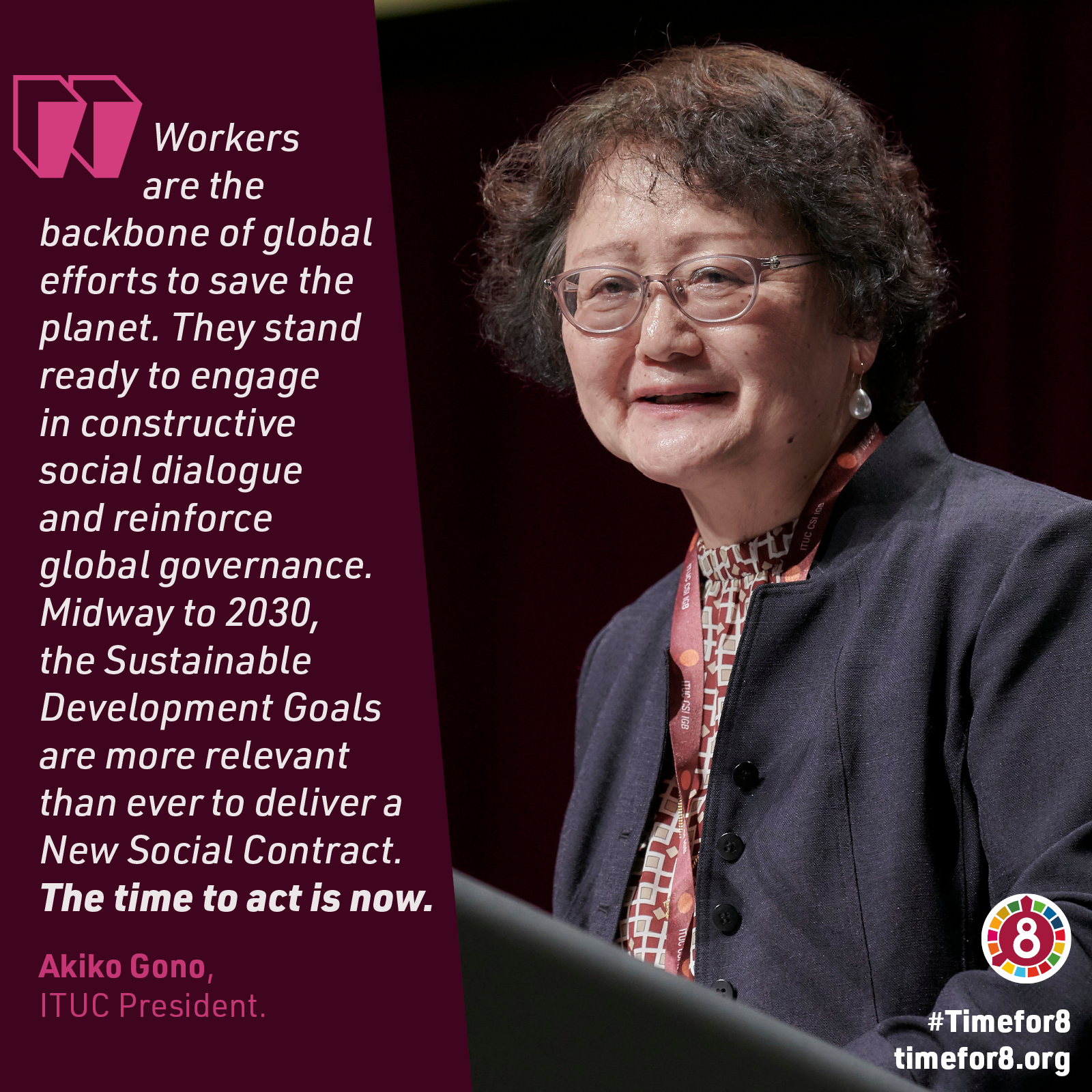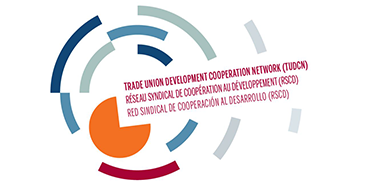#Timefor8
The clock is ticking for a New Social Contract
The planet is facing multiple crises that are having devastating effects on people and the environment.
Our world is becoming increasingly unstable and dangerous as conflicts increase, global inequality rises, and the climate crisis worsens.
This situation is furthering authoritarianism, harming workers through attacks on trade unionists and erosion of labour rights and wages.
Workers and trade unions see the 2030 Agenda and its Sustainable Development Goals (SDGs) as the roadmap for global change.
Goal 8, on decent work and sustainable economic growth, plays a leading role. Its targets on employment, workers’ rights, decent work, social protection, inclusive growth, and environmental preservation provide strong leverage for the other SDGs of the Agenda.
This why trade unions call for an SDG 8-driven recovery, with a gender transformative New Social Contract based on (1) creating decent, climate-friendly jobs with a just transition; (2) protecting workers’ rights; (3) ensuring fair pay and wage equality; (4) providing universal social protection; (5) ending discrimination and promoting equality; and (6) empowering developing countries through inclusive development systems.


